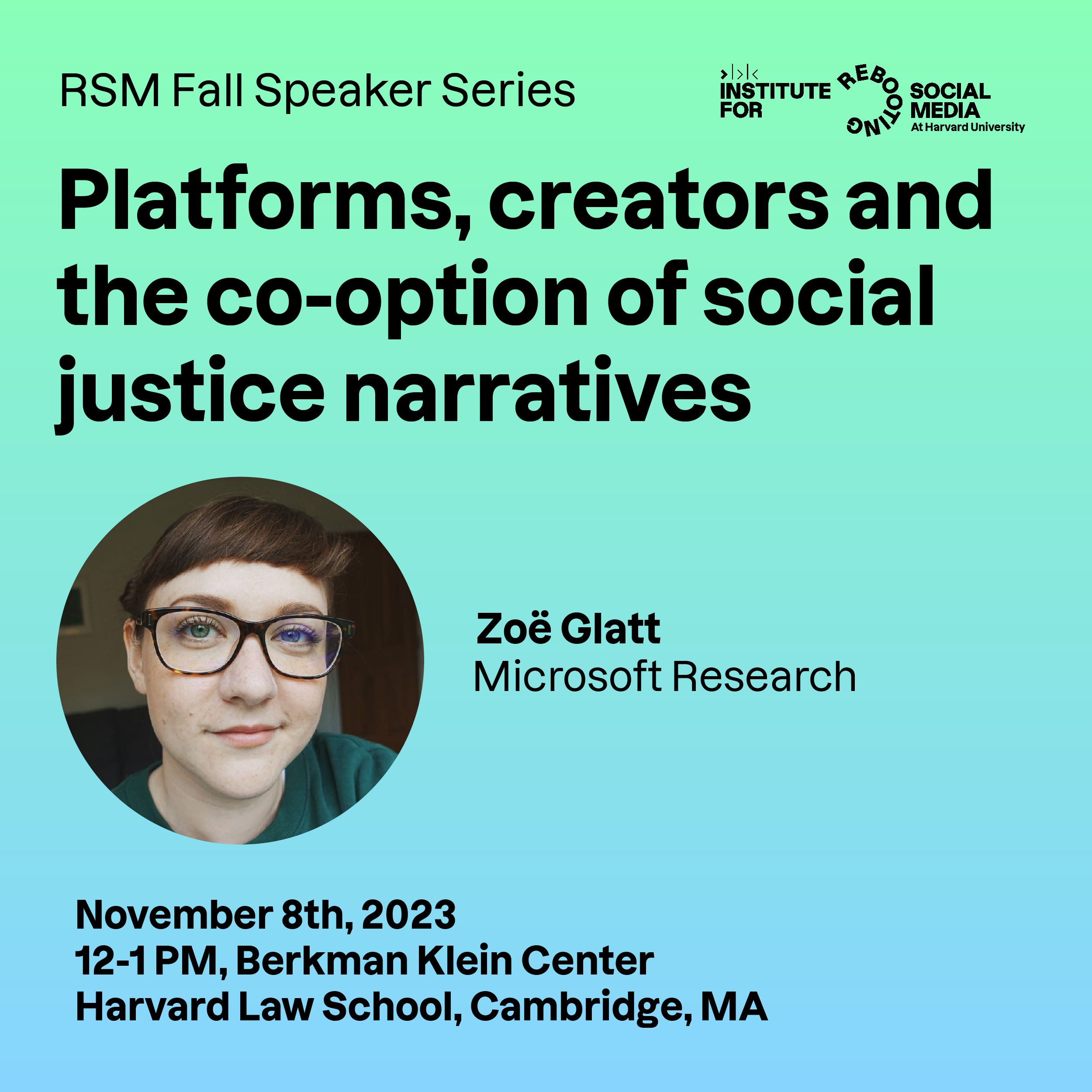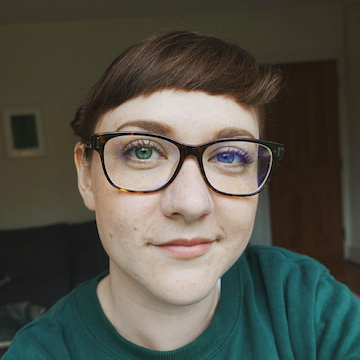RSM welcomes Zoë Glatt for a conversation with Visiting Scholar David Craig about her current research on the juxtapositions between structural inequalities in the influencer industry and the ways in which platforms co-opt social justice narratives.
“Contrary to highly celebratory industry discourses that position the influencer industry as diverse and meritocratic, in the past few years research has found that there are entrenched structural inequalities amongst creators working on social media platforms. This is an advertising-driven industry that makes visible the most profitable creators, those who do not disrupt the neoliberal status quo: white, straight, male, middle class, cisgendered, brand-friendly. At the same time, as anti-racist and intersectional politics have moved from the margins and into mainstream discourse social media platforms have clamoured to declare their deep commitment to social justice, launching initiatives from #YouTubeBlack to TikTok’s LGBTQ+ Visionary Voices List. Highlighting the incongruence of these two realities, in this talk Zoë Glatt will contend that these initiatives are more an exercise in corporate PR and the spectacular display of diversity than they are about any real commitment to changing structural relations of power.”
Zoë Glatt is a Postdoctoral Researcher in Sociotechnical Systems at Microsoft Research New England. She is a digital ethnographer and feminist media scholar with interests in platformized creative industries and labor, social media and influencer cultures, and digital ethnographic methods. Her current research interrogates the ways in which structural inequalities are exacerbated, co-opted and resisted in platform environments. During her time at Microsoft she is working on her first monograph, Demonetised: Inequality, Co-option and Resistance in the Influencer Industry.
David Craig is a Visiting Scholar with the Institute for Rebooting Social Media and a Clinical Professor of Communication at USC Annenberg. He conducts research on media industries and creator culture, mapping the dimensions, distinctions, and disruption generated by these cultural industries economically, politically, and socio-culturally. He has published three books and over two dozen articles about the global creator culture and the Chinese equivalent (wanghong). David is the co-director of the dual master’s program in global media and communication in partnership with the London School of Economics, and was a visiting scholar at Shanghai Jiao Tong for six years.


